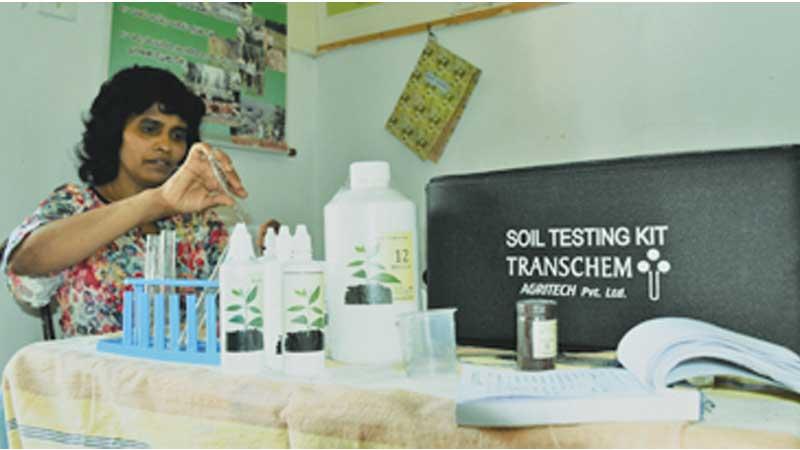
Soil-test-based fertiliser application could drastically reduce fertiliser use in agriculture, a group of agri-experts said last week.
The meeting was organised by the Rehabilitation of Degraded Agriculture Land Project (RDALP) of the Food and Agriculture Organisation of the United Nations.
Based on various types of research carried out by government agencies and universities, experts said chemical fertiliser application in Sri Lanka is extremely high.
This creates a major burden to the government budget on one hand and on the other the government’s fertiliser subsidy policy sources intensive use of fertiliser, they added. Due to Covid-19 pandemic, the meeting was held through the Zoom enterprise video communication platform and 30 experts, farmers and field officers participated.
The expert group consisted of Additional Secretary, Ministry of Environment Ajith De Silva, Additional Secretaries of the Ministry of Agriculture Dr. Gamini Samarasinghe and Dr. Ajantha De Silva, Assistant Country Representative, FAO Dr. D.B.T. Wijerathne, university professors, provincial agriculture directors, field officers, private sector representatives and farmers. Assistant Country Representative, FAO, Dr. D.B.T. Wijerathne said FAO donates 100 soil test kits to the Ministry of Agriculture to expand soil test-based fertiliser application in the Central highlands.
He said that FAO will help the government of Sri Lanka to reduce soil and water pollution and expand Sustainable Land Management (SLM) through future FAO projects.
The soil test-based fertiliser application field trials conducted by the RDALP and the Department of Agriculture (DoA) in the Kandy, Badulla and Nuwara Eliya districts have proved that fertiliser use in vegetable and potatoes can be reduced by 40 percent. FAO and DoA developed a site-specific fertiliser management system for sustainable crop production in Sri Lanka and introduced portable soil test kits that can be used in the field. RDALP in its SLM initiatives replicates this soil test-based fertiliser application to minimise soil and water pollution in the central highlands. Over use of inorganic fertiliser is a main cause for soil and water pollution.
Government has been encouraging chemical fertiliser use in paddy farming since the early 1970s. As a result of these motivations, fertiliser overuse and soil and water pollution has emerged as a serious threat, experts pointed out. Experts said that inorganic fertiliser overuse is mainly reported in vegetable cultivation in central highlands.
According to statistics, in the Nuwara Eliya district fertiliser use is three times higher than the recommended amount while it is twice higher in Welimada in the vegetable cultivation. Inadequate fertiliser use causes low yield and low profitability. Overuse of chemical fertiliser causes accumulation in soil and is toxic to plants, eutrophication of water bodies, enhances global warming through production of Nitrogen gas, enhances susceptibility of plants to pests and diseases and enhances weed population. However, overuse of fertiliser does not contribute to high yield and high income but increases the cost of production.
Triple Super Phosphate in inorganic fertiliser is the most serious water and soil polluter. Since most of the rivers begin in the Central highlands it pollutes water of all these rivers, they said.
